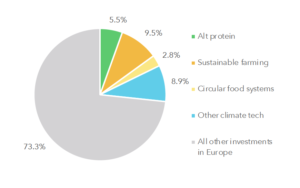
Data Snapshot: Europe needs more funding for food waste, circular economy startups
Circular economy startups addressing food waste, plastic alternatives and upcycling in Europe’s agrifood sector raised just 2.6% of VC funding last year.

Circular economy startups addressing food waste, plastic alternatives and upcycling in Europe’s agrifood sector raised just 2.6% of VC funding last year.
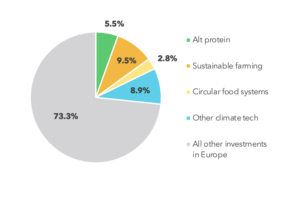
Climate investors may want to take a closer look at emerging opportunities in vertical farming. Or insect farms. Or pea milk. Or vegan leather. In fact, there’s a long list of agrifood technologies that are climate-positive investments, according to new research from AgFunder and Invest-NL.
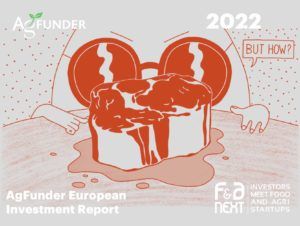
Climate-impactful categories were left behind in agrifoodtech investment in Europe in 2021 with over 40% of the total going to the eGrocery category, reveals a new report from AgFunder, F&A Next and Invest-NL.
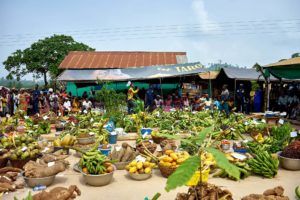
The year-long program is designed to prime Africa’s agrifoodtech VC pipeline by supporting early-stage startups with investment and business readiness.
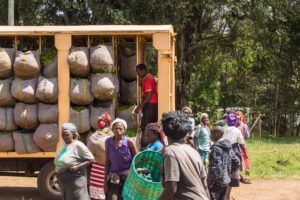
The Kenyan fund’s CEO talks about its own hard-learned lessons in everything from promoting tech as a tool, to fighting climate change on the continent.
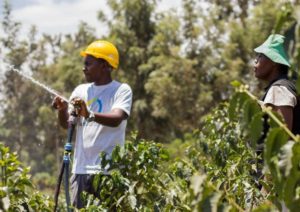
The impact investor aims to prove the commercial “climate resilience” opportunity in African agtech ventures like Kenya’s SunCulture and Nigeria’s Tomato Jos.

There’s nothing new about agrifood corporates investing directly in strategic technologies – but it is now a mainstream approach.

It wasn’t only the pandemic that shifted trends in Europe’s agrifoodtech scene. 2020 was the start of a new innovation cycle on the continent.

Cargill is consolidating is corporate venture investing and partnership activity under a centralized unit, Cargill’s new head of corporate ventures Erin VanLanduit tells AFN.
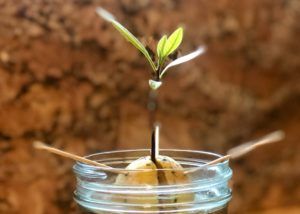
ADM Ventures’ Victoria de la Huerga talks with AFN working for a company that was acquired by ADM–then helping the corporation build its venture investing strategy.

The agrifoodtech sector not only rebounded quickly from Covid’s impacts, it far outpaced last year’s performance. Investor confidence speaks to a maturing sector and an environment ripe for new bets on next generation technologies.
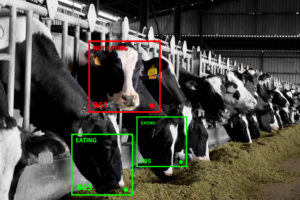
The essential aspect of food makes the agrifood industry less volatile – and less nimble – than other industries. Cargill’s SriRaj Kantamneni talks with AFN about investing for the industry’s digital future.
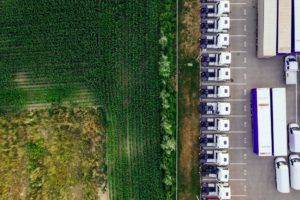
Cargill hopes Splinter can make supply chain collaboration the new industry norm – using blockchain’s best bits, while keeping competitive info under wraps.
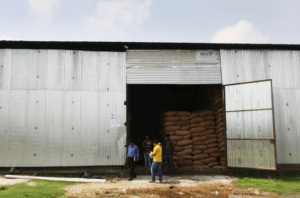
Delhi-based Arya, which provides grain storage and loans to smallholders, is fintech investor Quona Capital’s second ag finance deal.

It’s developing a line of alternative meat products made from the protein-rich ‘root’ networks of fungi.

The funding will enable the Indian startup to take its rapid soil testing kit and analytics services to the country’s 130 million smallholder farmers.

India will be home to more than 1.4 billion people by 2030. Unlike consumers in Europe and the US, they’ll be looking to eat more meat – not less.
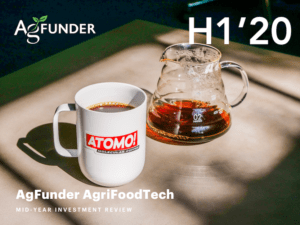
Agrifoodtech startups and investors are plugging away in 2020 as if we weren’t all caught in the midst of a global pandemic. Well, almost.

Few startups can say they’ve had an easy time fundraising this year. But Soplaya says the round it just closed was fast and painless, all things considered.

The Woburn, Mass.-based startup uses pharmaceutical discovery techniques to advance promising modes of action for fighting crop pests.
